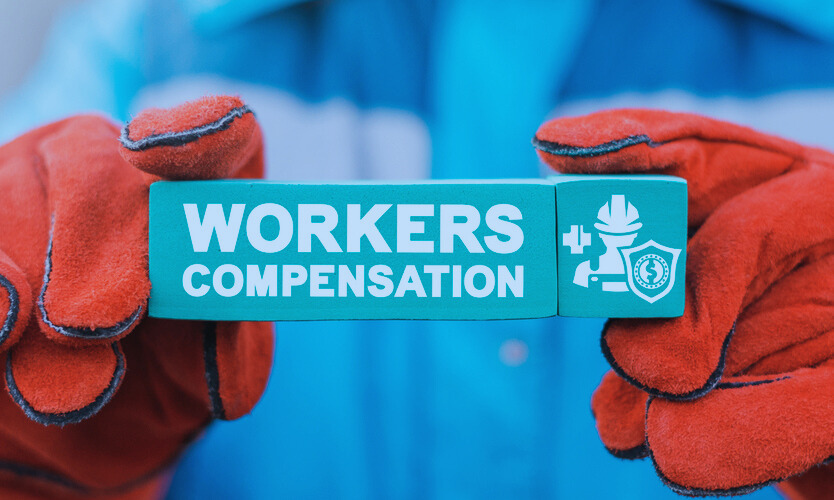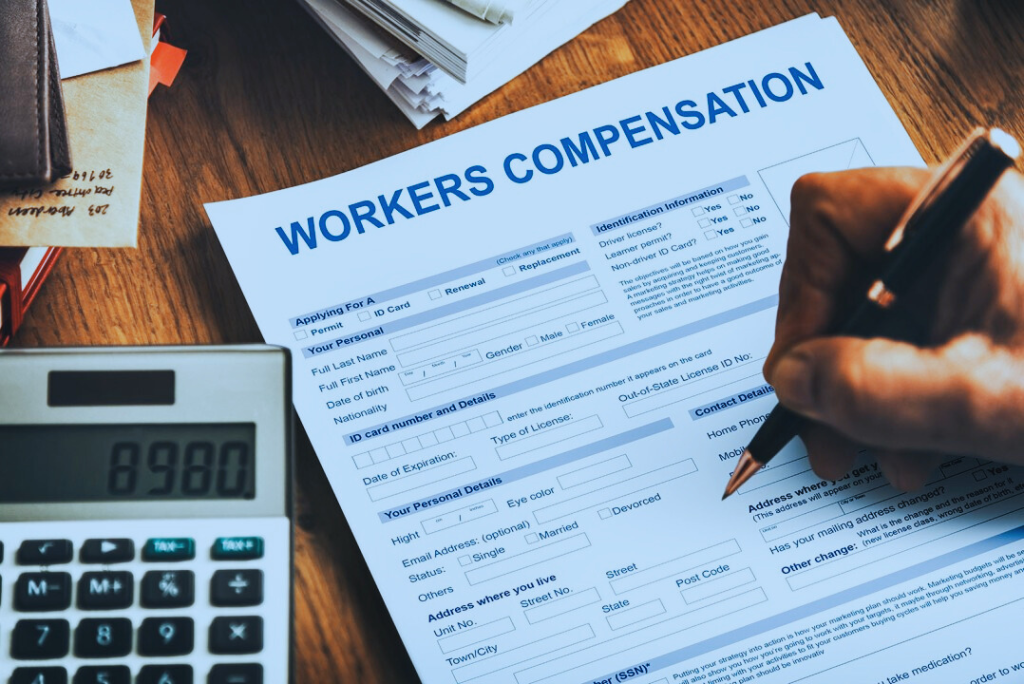Workers’ compensation insurance is a critical safeguard in today’s workforce, providing employees with a secure means of recovering from work-related injuries or illnesses without enduring financial hardship.
Understanding how does workers compensation insurance work is essential for both employees and employers, as this coverage can mitigate risks and support the well-being of everyone in a workplace.
In this article, we’ll explore how does workers compensation insurance work, from the basics of what it entails to how benefits are calculated and claims are processed.
What is Workers’ Compensation Insurance?
Before diving into how does workers compensation insurance work, it’s crucial to understand what workers’ compensation insurance is. Workers’ compensation is a form of insurance that provides financial support and medical benefits to employees who suffer work-related injuries or illnesses. In most regions, this insurance is mandatory for employers, protecting their workers from the financial burdens of medical expenses, lost wages, and other costs associated with injuries sustained on the job.
Workers’ compensation laws have evolved over the years to reflect the growing focus on workplace safety and employee welfare. The system is designed to be mutually beneficial: employees receive financial support when they need it most, while employers gain protection from costly lawsuits related to workplace injuries. By requiring employers to carry workers’ comp, jurisdictions ensure that injured workers can recover without needing to prove employer negligence.
Who Qualifies for Workers’ Compensation?
One of the foundational aspects of how does workers compensation insurance work lies in understanding who qualifies for this coverage. Most employees who work under an employer-employee relationship are eligible for workers’ compensation. However, eligibility can vary depending on specific factors such as the employee’s job role, industry, and location.
In general, employees who sustain injuries while performing their job duties are covered. Independent contractors, freelancers, and volunteers, however, may not be eligible for workers’ compensation benefits. Certain industries, like maritime work, may have specialized coverage rules. Since workers’ comp laws vary by state, both employers and employees should be familiar with local regulations to fully understand how does workers compensation insurance work in their region.

What Does Workers’ Compensation Cover?
The coverage offered by workers’ compensation insurance is one of the key aspects of how does workers compensation insurance work. Workers’ comp typically covers a range of expenses and benefits, including:
- Medical expenses – coverage includes costs for medical treatment, rehabilitation, and therapy related to the injury or illness.
- Wage replacement – when an employee needs time off to recover, workers’ comp provides partial wage replacement, helping workers manage their expenses during recovery.
- Disability benefits – workers’ compensation offers benefits for temporary or permanent disabilities, depending on the severity and type of injury. This may include temporary total disability, temporary partial disability, permanent total disability, or permanent partial disability.
- Ongoing care -in cases where an injury requires long-term or lifetime care, workers’ compensation can cover ongoing medical treatment and rehabilitation.
- Death benefits – in the unfortunate event of a fatal workplace incident, workers’ compensation provides death benefits to the employee’s family, including assistance for funeral expenses and support for dependents.
Understanding the scope of this coverage is fundamental to grasping how workers’ compensation insurance works and how it benefits employees dealing with unpredictable workplace injuries.
How Claims are Filed and Processed
The workers’ compensation claims process is a vital part of workers’ compensation insurance, as it determines how quickly and smoothly injured employees can access their benefits. When an injury occurs, the employee must notify their employer as soon as possible. Documentation, such as a report of the incident and medical records, is essential for a successful claim. Employers must assist in the process, often filing an official report with the insurance provider and keeping detailed records of the incident.
Once the claim is filed, the insurance provider evaluates the case, reviewing documentation to determine whether the claim meets the criteria for compensation. If the claim is approved, the employee receives benefits to cover medical expenses, lost wages, and other applicable compensation. If the claim is denied, the employee has the option to appeal the decision, which may require additional documentation or a formal hearing. Timely and accurate reporting is key in understanding how does workers compensation insurance work for a seamless claims experience.
Employer Responsibilities Under Workers’ Compensation Insurance
Understanding how this coverage works also involves knowing the responsibilities employers have in this system. Employers are typically required to carry workers’ compensation insurance for their employees, which helps protect both the business and its workforce. They must prioritize workplace safety, comply with workers’ comp regulations, and ensure that employees are informed about their rights.
Employers play an active role in the event of a work-related injury. Not only must they start the claims process, but they must also help injured employees by providing resources and guidance on how to file claims and seek benefits. Additionally, employers may need to accommodate the injured employee if they are able to return to work in a limited capacity. Non-compliance with workers’ compensation laws can lead to serious legal and financial consequences, reinforcing the importance of understanding how workers’ compensation insurance works for all parties involved.
How Workers’ Compensation Benefits are Calculated
An essential part of understanding how workers’ compensation insurance works is knowing how benefits are calculated. Benefits are calculated based on several factors, including the employee’s wages, the severity of the injury, and the expected recovery period. The type of disability (temporary or permanent, partial or total) also plays a significant role in determining the benefit amount.
The most common method to calculate benefits is based on the employee’s average weekly wage (AWW) before the injury. This AWW is then multiplied by a specific percentage, typically around 66-75%, to determine the wage replacement benefits. Each state has its own specific guidelines and caps on benefits, which can affect the final amount an employee receives.
For example, temporary disability benefits provide wage replacement during the recovery period but may cease once the employee is able to return to work. In contrast, permanent disability benefits are designed for cases where an employee cannot fully recover and offer ongoing support.
Potential Challenges in the Workers’ Compensation System
When learning how workers’ compensation insurance works, it’s essential to consider some of the common challenges that employees and employers may face within this system. Claims can sometimes be denied due to insufficient documentation or doubts about whether the injury is genuinely work-related. To avoid these issues, employees must provide thorough documentation and follow their workplace’s reporting procedures.
Workers’ compensation fraud, where false or exaggerated claims are made, is another challenge that affects the system. Fraud can lead to increased premiums for employers, making it costly for businesses. Additionally, disputes or delays in the claims process can create obstacles, particularly when the employee feels they have been wrongfully denied benefits. The system provides an appeals process for these situations, but it may add complexity and time to receiving benefits.

Conclusion
Now that you know how does workers compensation insurance work, you understand the importance of this coverage in ensuring workplace safety and supporting employees through unexpected injuries. Workers’ compensation insurance benefits both employees and employers by facilitating financial protection and legal coverage, which are crucial for maintaining a stable and supportive work environment.
As workplaces continue to evolve with technology and new job types, the workers’ compensation system will likely adapt, incorporating digital claims processing, telemedicine options, and other advancements. Insurance agencies managing these policies often rely on insurance BPO services to handle the volume of claims, allowing them to focus on delivering better service to their clients. In this way, workers’ compensation insurance remains a vital framework for worker protection, empowering employers to support their teams effectively while enhancing business stability.
